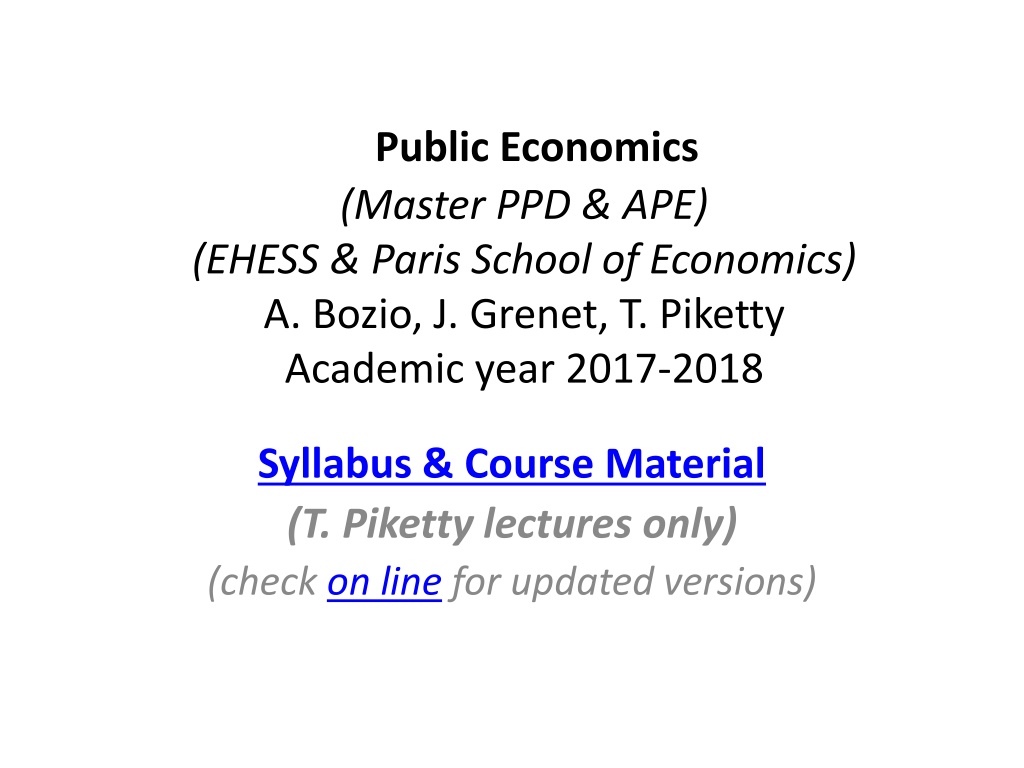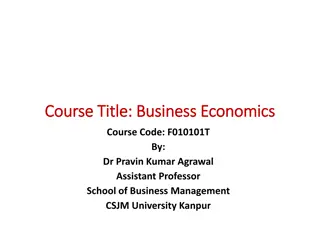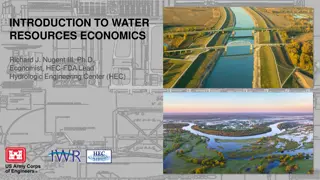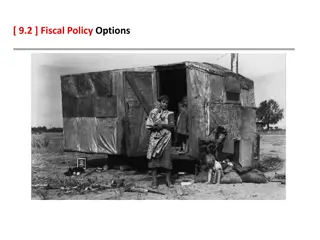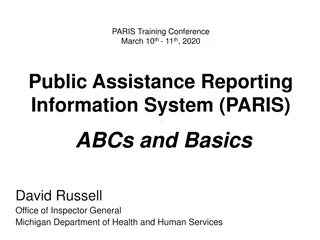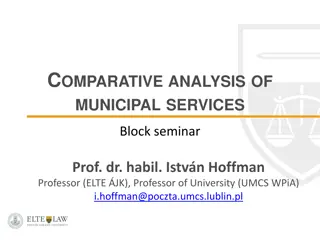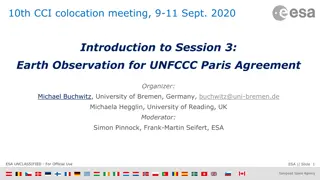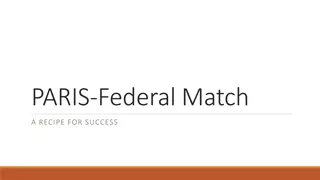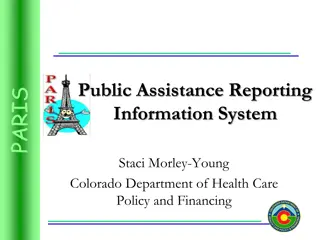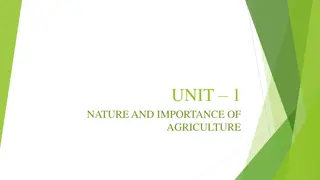Public Economics Course Summary - EHESS & Paris School of Economics
The Public Economics course at EHESS & Paris School of Economics offers an introduction to taxation history, government intervention theories, and policy incidence across developed and developing countries. The syllabus covers topics like welfare analysis, wealth taxation, and optimal taxation strategies. Emphasis is placed on active lecture participation and exam completion for validation.
Download Presentation

Please find below an Image/Link to download the presentation.
The content on the website is provided AS IS for your information and personal use only. It may not be sold, licensed, or shared on other websites without obtaining consent from the author. Download presentation by click this link. If you encounter any issues during the download, it is possible that the publisher has removed the file from their server.
E N D
Presentation Transcript
Public Economics (Master PPD & APE) (EHESS & Paris School of Economics) A. Bozio, J. Grenet, T. Piketty Academic year 2017-2018 Syllabus & Course Material (T. Piketty lectures only) (check on line for updated versions)
Email : piketty@psemail.eu Office: Jourdan B101 Course web page : http://piketty.pse.ens.fr/teaching/10/18 (check on-line for updated versions)
The objective of the Public economics course is to present an introduction to public economics, with special emphasis on the history of taxation, public spending and state formation, normative theories of government intervention & redistribution, & the incidence of tax and transfer policies, both in developed countries and in the developing world For an introduction to economic history, with emphasis on capital accumulation, inequality & growth, see Introduction to Economic History course; both courses are complementary The course is organized in 12 lectures of 3 hours To validate the course, students are required (1) to attend and actively participate to all lectures; (2) to take the exam (past exams are available here)
A quick roadmap of the lectures Lectures 1-7 by A. Bozio and J. Grenet (General introduction; Tools for welfare analysis; Taxation of goods and services; Labor income taxation; Social insurance) Lecture 8: Normative and intertemporal theories of fiscal and social justice (Monday November 6th2017)
Lecture 9: Wealth & property taxes over time & across countries (Monday November 13th2017) Lecture 10: Optimal taxation & accumulation of capital & wealth (Monday November 20th2017) Lectures 11-12 by A. Bozio & J. Grenet (Corporation taxation; externalities)
How to use the reading list The reading list contains many references (particularly regarding the history of taxation, theories of justice, and optimal taxation). Aim is to provide an introduction to the existing literature for students who plan to specialize in these areas. You are not expected to read everything! You should try to read at least the highly recommended readings (denoted with a *), as well as a selection of books and articles based on your own tastes. But please read! The exam will be based upon a good working knowledge of all the material that is presented in the lecture slides (in particular the optimal tax models). Please ask during the classes if there is anything unclear in this material.
Reading list (* : highly recommended reading) Lecture 8: Normative and intertemporal theories of fiscal and social justice K. Arrow, Social Choice and Individual Values, YUP 1951 J. Rawls, A Theory of Justice, HUP 1971; Political Liberalism, HUP 1995; The Law of Peoples, HUP 1999; Justice as Fairness: A Restatement, HUP 2001 * J. Harsanyi, Can the Maximin Principle Serve as a Basis for Morality? A Critique of John Rawls's Theory , APSR 1975 A. Sen, Commodities and capabilities, OUP 1987; Development as Freedom, Anchor 1999; The Idea of Justice, HUP 2009 * A. Sen, Development as Freedom: an Indian Perspective , IJIR 2006 M. Fleurbaey, Th ories conomiques de la justice, Economica 1996; Fairness, Responsibility and Welfare, OUP 2008 J. Roemer, Theories of Distributive Justice, HUP 1998 W. Kymlicka, Contemporary Political Philosophy, OUP 2002
P. Rosanvallon, La socit des gaux, Seuil 2011; Le bon gouvernement, Seuil 2015 M. Nussbaum, Frontiers of Justice: Disability, Nationality, Species Membership, HUP 2006 M. Sandel, Justice: What's the Right Thing to Do?, Farrar 2010; What Money Can't buy:The Moral Limits of Markets, Farrar 2012 * T. Piketty, Social Mobility & Redistributive Politics , QJE 1995 * -- , The Information-Aggregation Approach to Political Institutions , EER 1999 D. Spector, Rational Debate Leads to One-Dimensional Conflict , QJE 2000 J. Roemer, W. Lee, K. Van der Straeten, Racism, Xenophobia, and Distribution: Multi-Issue Politics in Advanced Democracies, HUP 2007; JEEA 2006; JE 2005 ; SJE 2006; SIR 2009; JES 2013 L. Kuziemko, M. Norton, E. Saez, S. Stantcheva, How Elastic are Preferences for Redistribution? , AER 2015 ** Phelps, Golden Rule ; Stern etc.
Lecture 9: Wealth & property taxes over time & across countries * Capital..., chap.15 J. Beckert, Inherited wealth, PUP 2008 I. Fisher, Economists in Public Service , AER 1919 K. Scheve, D. Stasavadge, Democracy, War & Wealth Evidence from Two Centuries of Inheritance Taxation , APSR 2011 * French & US recent inheritance & wealth tax schedules (xls) G. Du Rietz, M. Henrekson, D. Waldenstr m, Swedish Inheritance and Gift Taxation (1885 2004) , in Swedish Taxation: Developments since 1862, Palgrave 2015, Chap. 5 G. Du Rietz, M. Henrekson, Swedish Wealth Taxation (1911 2007) , in Swedish Taxation: Developments since 1862, Palgrave 2015, Chap. 6
I. Martin, The Permanent Tax Revolt: How the Property Tax Transformed American Politics, SUP 2008; After the Tax Revolt: California s Proposition 13 Turns 30, 2008; Rich People's Movements: Grassroots Campaigns to Untax the One Percent, OUP 2013 H. Glennester, A Wealth Tax Abandonned: The Role of UK Treasury 1974-1976 , LSE 2011 G. Zucman, Les hauts patrimoines fuient-ils l ISF? Une estimation sur la p riode 1995-2006 , PSE Master Thesis, 2008 - - , The missing wealth of nations: are Europe and the US net debtors or net creditors? , QJE 2013 * - - , Taxing across borders: Tracking personal wealth and corporate profits , JEP 2014 - -, The Hidden Wealth of Nations, The University of Chicago Press, 2015 N. Johannesen and G. Zucman,, "The End of Bank Secrecy? An Evaluation of the G20 Tax Haven Crackdown", AEJ 2014 K. Clausing, "In Search of Corporate Tax Incidence", WP 2011 Tax Law Review 2012
Lecture 10: Optimal taxation and accumulation of capital & wealth * T. Piketty, E. Saez, G. Zucman, Rethinking Capital & Wealth Taxation , PSE 2013 A.B. Atkinson and J. Stiglitz, The design of tax structure: direct vs indirect taxation , JPubEc 1976 V. Christiansen, Which Commodity Taxes Should Supplement the Income Tax ? , JPubEc 1984 E. Saez, The Desirability of Commodity Taxation under Non-Linear Income Taxation and Heterogeneous Tastes , JPubEc 2002 --, Direct vs Indirect Tax Instruments for Redistribution : Short-run vs Long-run , JPubEc 2004 --, Optimal Progressive Capital Income Taxes in the Infinite Horizon Model , JPubEc 2013 T. Piketty, E. Saez, A Theory of Optimal Inheritance Taxation , Econometrica 2013 (WP 2012) E. Farhi, I. Werning, Bequest Taxation and r - g , WP 2014 N. Kaldor, An Expenditure Tax, Unwin 1955
